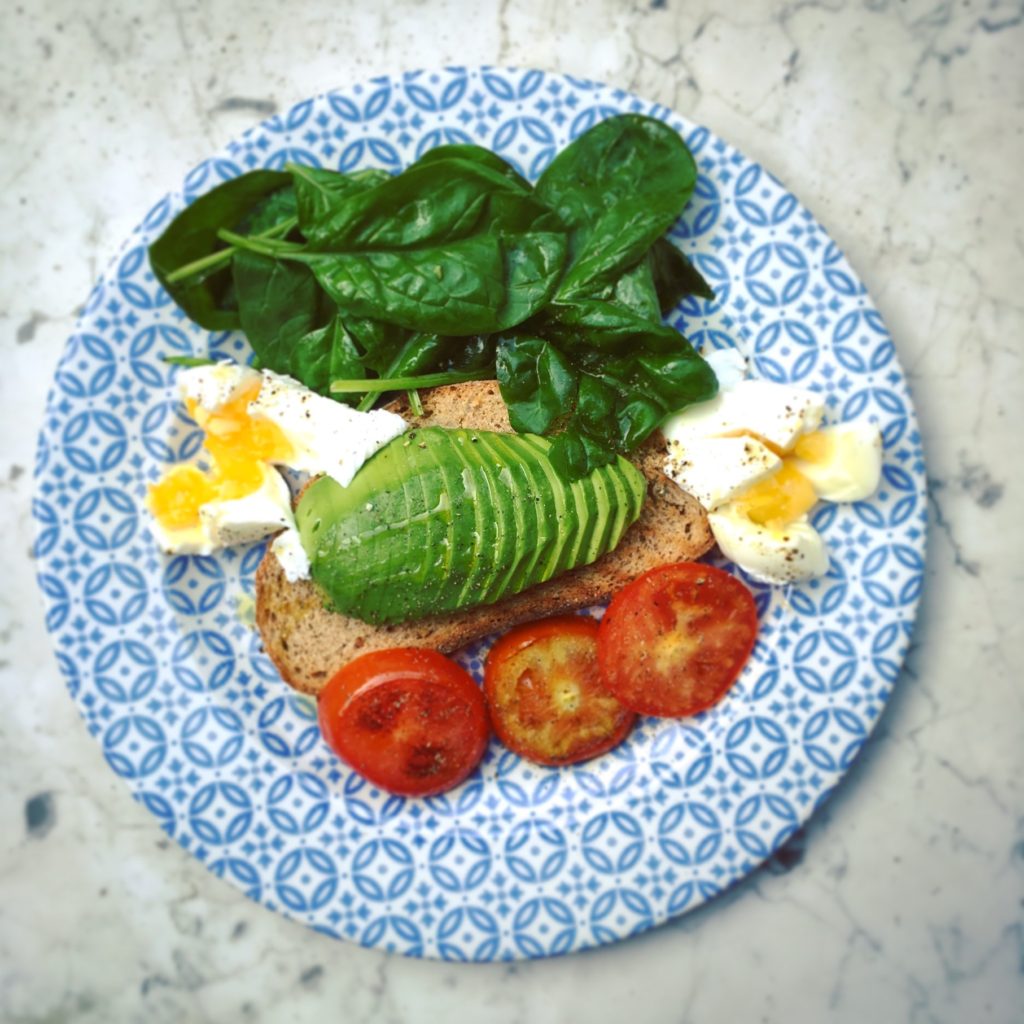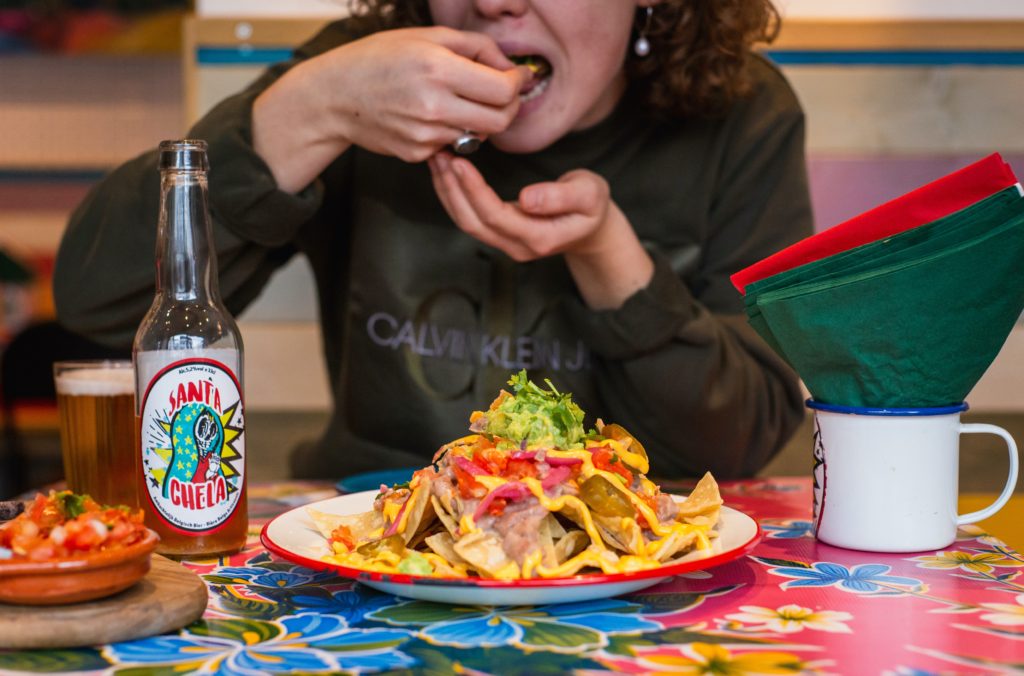
Four Ways Intuitive Eaters Create Lasting Healthy Habits
I am often asked for tips on healthy eating or sticking to healthy habits.
As an intuitive eating dietitian, I know there’s something else we need to talk about first before I give you more of the same nutrition advice you’ve probably heard before: your relationship with your food and body.
As an intuitive eater, all foods are neutralized. No good, no bad, just food.
But when you hear that you probably automatically think…. uhhh… I can’t be trusted with ANY AND ALL FOODS!!
So many people get the idea that neutralizing foods and giving yourself unconditional permission to eat means that you will start eating all the junk food you’ve kept off limits for so long and never stop. But that’s not really the case.
Becoming an intuitive eater who easily follows a tasty, sustainable, and nutritionally sound eating pattern is a process. You can’t exactly just wake up one day and say, “Well I’m an intuitive eater now, I can eat and do whatever I want.” First, you have to learn to listen to and trust your body.
What comes after that, though? Isn’t good nutrition still important? I get asked this question all the time.
Yes, good nutrition IS important.
But my guess is that most of you actually do have a decent idea of how to make the right nutrition decisions.
This is what I mean: if I asked you to tell me what a healthy diet pattern includes, you’d probably have a pretty good answer already. Especially if you’ve been a dieter and have done some of your own research to learn how to eat healthy. Sure, you could probably use a few pointers from me, but I bet you’d be on the right track.
If most of us already have a decent idea of what a healthy meal pattern looks like, do you know what the actual problem is?
Sustainability, your relationship with food, and only feeling motivated to make healthy choices so that you can change your physical appearance.

When you decide it’s time to eat healthy again, how much do you use phrases like “time to get back on track” or “I need to be better again”? Do you end up feeling guilty if you don’t perfectly stick to your plan or once you fall off the wagon again?
What that tells me is that your definition of eating and being healthy may not be sustainable for your lifestyle because you can’t maintain those patterns EASILY. It also tells me there may still be some trouble under the surface in your relationship with food and body.
When they started working with me, a couple of my clients felt like they already really understood intuitive eating and had a perfectly healthy relationship with food.
Just a week or two in, they both realized just how much work they still needed to do to truly have a healthy relationship with food and body.
The mindset change is the real secret you’ve been looking for all along.
Learning how to make peace with food, say goodbye to dieting rules, and give yourself unconditional permission to eat are the KEY to achieving that actually easy, healthy lifestyle you’ve always wanted.
Improving your relationship with food is so much more important than any nutrition education I could provide you with.
I would rather teach you how to feel empowered to make your food decisions based on what feels best for YOUR body, not based on what worked for someone else or scientific research. When you really trust your body to take the wheel, you will find yourself naturally gravitating towards foods that make you feel good, both the nutritious foods AND the fun foods.
Now that I’ve explained why it’s so important for you to address your relationship with food, let me share four tips for making more sustainable, healthy food choices like an intuitive eater that you can start practicing today.
- EAT WHEN YOU’RE HUNGRY
This might seem silly to you, but my number one recommendation is to actually start eating when you’re hungry and honoring your body’s request for more energy. When I say hungry, I don’t mean waiting until you’re hangry. I mean start actually eating every time your body signals hunger which means you should start trying to pick up on your body’s more subtle hunger cues and honoring those, too. - CREATE A BALANCED PLATE
A classic nutrition recommendation: most of the time, aim to create a plate that is a good balance of your macronutrients (carbohydrates, protein, and fat) plus some fruits & veggies. By aiming for a balanced plate and a wide variety of foods, you ensure that over the long-term you are meeting your nutritional needs. Plus, because each of the macronutrients take different amounts of time to digest, you ensure that you have created a meal with more staying power, meaning you won’t find yourself super hungry again shortly after your meals. - ALLOW YOURSELF TO ENJOY THE PLAY FOODS
First of all, let’s stop referring to anything that isn’t “healthy” as a cheat food or something you should feel bad for eating. You ARE allowed to enjoy foods that have little nutritional value (S/O cheetos puffs!!!). We are allowed to eat for pure satisfaction and diet culture is what has made you believe you couldn’t! Give yourself full permission to enjoy the fun foods, and when you eat them start to pay attention to the experience instead of feeling bad about it! Once you have permission to eat fun foods and start to pay attention to how they make you feel, you might even find that they lose the power they had over your cravings.

- IT’S ABOUT THE BIG PICTURE
Nutrition recommendations like above should be used as guidance, but not rules that need to be followed to a T every. single. day. When thinking about your nutrition, try to think long term. If you’re considering a change to your eating pattern, is it something that (based off of your history with dieting) you think you’ll be able to stick to long-term? Are you setting yourself up to be angry in a few months if you’re off the wagon again? It is more important for you to make small changes that you can stick to, rather than make huge goals that require a ton of your mental energy. It’s also why in the nutrition recommendations I made above, I say most of the time. If you try to eat “perfectly” 100% of the time and feel terrible anytime you just enjoy a food despite its nutritional value, you’re setting yourself up to lose. A good goal would be to consistently honor your hunger with foods that make you feel energized in a way that fits your happiest lifestyle!
I hope this was helpful insight into why addressing your relationship with food is so important and how to start making more sustainable nutrition decisions starting today.
If you’re interested in really getting into the mindset work that needs to be done to heal your relationship with food and body, let’s work together! I have an Intuitive Eating group coaching program starting in October, and I’d love for you to be a part of it. Start your journey to a healthier relationship with food and a mindset shift that gives you back your energy so you can be your happiest self.
Talk soon,
Lauren